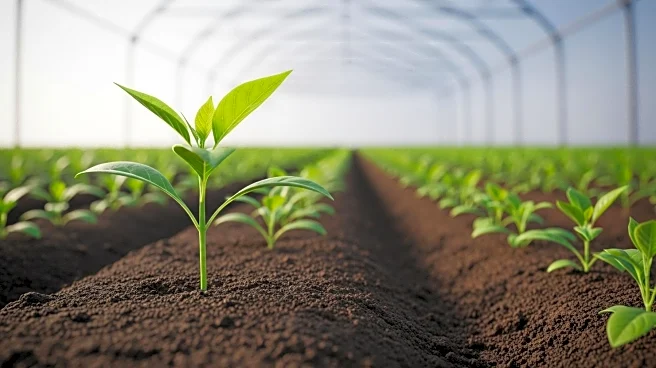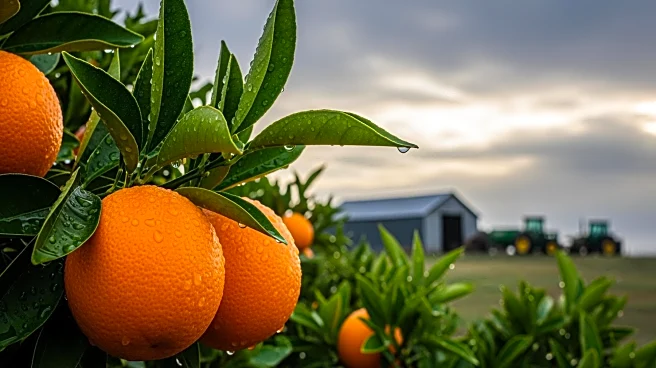What is the story about?
What's Happening?
The Sustainable Agriculture Market is experiencing substantial growth as global efforts intensify towards eco-friendly and climate-resilient farming practices. The market, which includes techniques such as organic farming, agroforestry, and crop rotation, is projected to grow from $22.9 billion in 2024 to $69.5 billion by 2034, at a compound annual growth rate (CAGR) of 11.7%. This growth is driven by increased consumer awareness of food safety, environmental sustainability, and the health impacts of chemical-intensive agriculture. Governments and regulatory bodies are supporting these initiatives through subsidies, incentives, and favorable policies, which are accelerating the adoption of green farming solutions worldwide.
Why It's Important?
The expansion of the Sustainable Agriculture Market is crucial for addressing environmental concerns and promoting healthier food production methods. As consumer preferences shift towards organic and locally sourced produce, the market is responding with innovative solutions that reduce environmental impact and enhance resource efficiency. This growth supports the transition to more resilient farming methods, which are essential in combating climate change and ensuring long-term food security. The market's development also presents significant opportunities for technological advancements in precision agriculture, which can optimize crop yields and sustainability outcomes.
What's Next?
The market is expected to continue evolving with the integration of digital solutions such as blockchain and AI-enabled analytics, allowing farmers to make data-driven decisions that optimize resource use and reduce waste. However, challenges such as high initial investment costs and inadequate rural infrastructure remain. Strategic planning and investment in infrastructure will be necessary to overcome these barriers and fully realize the potential of sustainable agriculture. Additionally, geopolitical tensions and climate variability may influence input costs and disrupt supply chains, necessitating adaptive strategies from stakeholders.
Beyond the Headlines
The shift towards sustainable agriculture has deeper implications for global biodiversity and environmental health. As nations increasingly import food, the biodiversity footprints of these countries highlight the severe impact of agricultural practices on global ecosystems. Sustainable agriculture practices can mitigate these impacts by promoting soil health and reducing habitat destruction, contributing to the preservation of biodiversity.

















